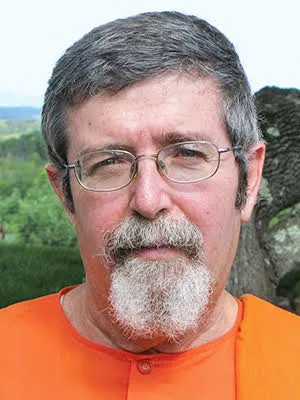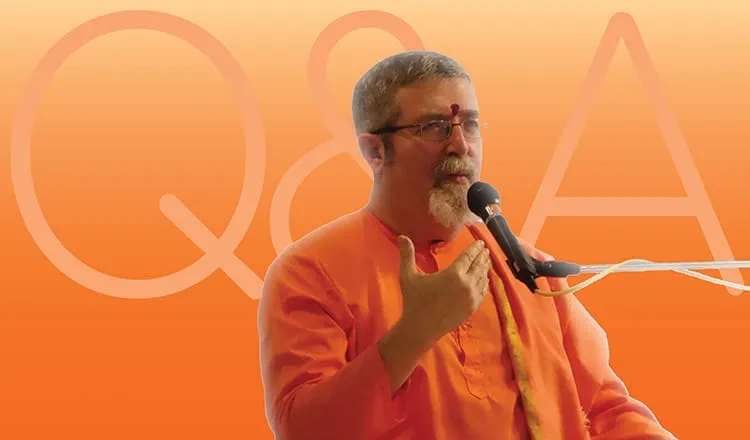Sivananda Bahamas Blog
Expand Your Horizons …
Our Blog
What is Vedanta philosophy?
Question: What is Vedanta philosophy?
Answer: The philosophy which is based on the teachings of the Upanishads is called Vedanta. The Upanishads are the ending portions of the Vedas, and their subject matter is focused on answering the question what is Ultimate Reality? What is Ultimate Reality? This is the subject matter of the Upanishads.
There are different systems of Vedanta. The system of Vedanta that we follow is called Kevala Advaita Vedanta — non-dualistic Vedanta. This system of philosophy can be summarized in three statements:
The first statement says that there is an Ultimate Reality, there is an Absolute Reality, and the name of that reality is Brahman. Brahman is Absolute Reality. And that Absolute Reality alone is real. The first statement is “Brahma Satyam”— means Brahman, or Absolute Reality, alone is real.
The second statement of this philosophy says that the world of phenomena is just a false appearance. The world consists of false appearances, and itself is a false appearance. What is the definition of appearance? The definition of appearance is anything that changes within time is considered to be an appearance. Anything that appears and disappears is an appearance. Anything that comes and goes is an appearance. You know within the phenomenal world, everything changes, all the time. Therefore, everything is of the nature of appearance.
And how does one understand what the nature of appearance is? The nature of appearance is like the nature of the false snake when you look at the rope, or like the nature of the water when you look at a mirage. This is the nature of appearance. The world of phenomena has an illusory nature. It appears, but the way it exists is different. Saying that the world of phenomena is an appearance, we do not say that it does not exist. It exists as an appearance. We do not say that the mirage in the desert does not exist. We experience it. It exists as an appearance. We do not deny the relative existence of the world. We acknowledge the relative existence of the world. But we do not acknowledge the Ultimate existence of the world. This is the second statement: The world is just a false appearance, since it is a temporary appearance.
The third statement says that the “jiva”— the individual self, or the individual consciousness, is not different from Brahman. The individual — the one which perceives himself to be an individual—is not different from Ultimate Reality. The individual is not different from Absolute Reality. The individual is not different from the ground of all existence, which is Brahman and is one with Brahman always. Swami Swaroopananda, who perceives his self to be an individual, in his essential nature, is identical with Brahman, with Ultimate Reality, with Absolute Reality, with the ground of all being.
These are the three statements which summarize the teachings of Kevala Advaita Vedanta. Brahman alone is real. The world of names and forms is of the nature of false appearance. And the individual is not different from Ultimate Reality in essence. That is what Vedanta philosophy is.

Swami Swaroopananda is a senior disciple of Swami Vishnudevananda. A practicing yogi from a very young age, Swami Swaroopananda has dedicated his life to the practice and teaching of yoga. He taught in Yoga Teacher Training Courses around the world and is currently teaching advanced yoga philosophy courses and lectures internationally. He is Director of the Sivananda Ashram Yoga Retreat and acharya (spiritual director) for the Sivananda centers and ashrams in the Bahamas and the Middle East. He is a member of the Board of Directors of the International Sivananda Yoga Vedanta Centres.
Upcoming Courses
Enjoy a delicious vegetarian feast, a reading of the Haggadah, Passover chants, and teachings on Passover’s relationship to yogic principles.
In honor of the Sivananda lineage and Swami Swaroopananda's birthday, we invite all guests, friends, and residents of the ashram to come together for a celebration.
During this special time of year we invite you to join us in celebrating wisdom, love, compassion, and the transcendence of artificial barriers.









One thought on “What is Vedanta philosophy?”
Michael Chandra Cohen
I believe you misinterpret Sankaracharya and the tradition of Advaita by saying “… the world of phenomena is an appearance, we do not say that it does not exist. It exists as an appearance. We do not say that the mirage in the desert does not exist.”
Sankara uses terms like atasmiṁs tadbuddhir, “to imagine a thing to be where actually it is not” or satya anṛte mithunīkṛtya, “mixing up the true and the untrue.” While Gaudapada is even more staunch in his rejection of appearance as real, “If the world of plurality really existed, it would no doubt really come to an end…(GK1.17)” and Sankara’s commentary on the same, “But the world of plurality no more exists than a snake imagined in a rope …. is not something that actually exists and is then later brought to an end. And further, Sa ca maya na vidyate (GK4.58), “the truth about maya is that it does not exist at all”:
Citations like these are numerous. If we posit any kind of existential being (bhavarupa) to appearance it gains a tenability that can’t be dismissed by knowledge alone. There is no snake; if there were we would need a stick to get rid of it – knowledge wouldn’t be sufficient. om